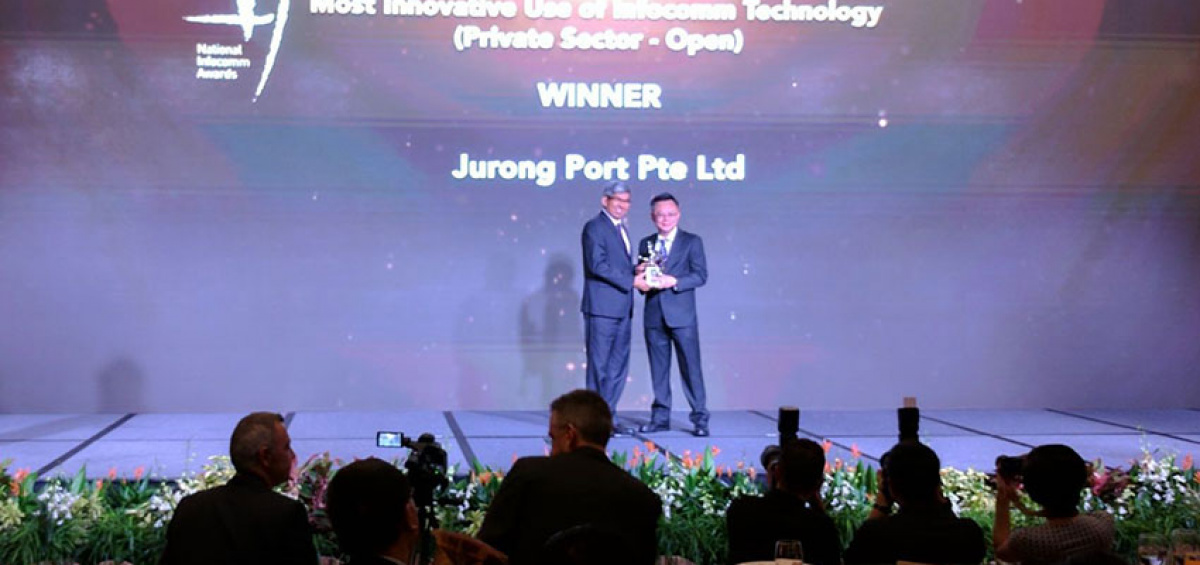Singapore — Jurong Port’s ‘Smart Gate’ has been recognised as the “Most Innovative Use of Infocomm Technology” in the private sector – open category at the National Infocomm Awards (NIA). Jointly organised by the Infocomm Media Development Authority of Singapore and the Singapore infocomm Technology Federation, the NIA is Singapore’s highest accolade for infocomm innovation. The award recognises companies in Singapore which have exemplified the spirit of innovation, in their development of new infocomm products and services, or their use of infocomm technology to achieve excellence.
“An off-the shelf solution would not have been suitable because the port handles a wide variety of cargo; each with its unique set of considerations. The ability to customise and integrate various technologies, such as with this “Smart Gate”, is a critical step towards a next generation multipurpose port,” said Chief Executive Officer of Jurong Port Mr Ooi Boon Hoe. The port had previously won a Merit Award in the same category in 2010 for “Transforming General & Bulk Cargo Operations through Infocomm Technologies”.
The ‘Smart Gate’ is an enhancement to Jurong Port’s main cargo access gate integrating various technologies in an innovative approach to achieve a single-touch experience for port users without compromising security. Ease of implementation and possible cost-savings from the deployment of technology were important considerations in the project.
These technologies include:
- Two-tiered gate access with biometric verification using vascular vein technology which was selected and tested to have field-proven reliability and ease of use.
- Advanced Dynamic Lane management to manage vehicle entry based on traffic conditions and port requirements.
- CCTV with video content analytics
- Real time intelligent logic processing to detect anomalies based on the inputs from various subsystems.
- Smart UI design automatically highlighting areas of concern (e.g. security validation)
With more than 2,000 vehicles and 3,000 port users passing through the main gate daily, it is critical to facilitate an efficient and smooth customer experience without compromising safety and security standards. The introduction of the Smart Gate has since resulted in considerable productivity improvements such as minimising vehicle waiting times and freeing up manpower for redeployment in other areas such as security, through the automation of processes. Another benefit of the Smart Gate is that port users now enjoy more than 60% reduction in document processing time at the main gate.





